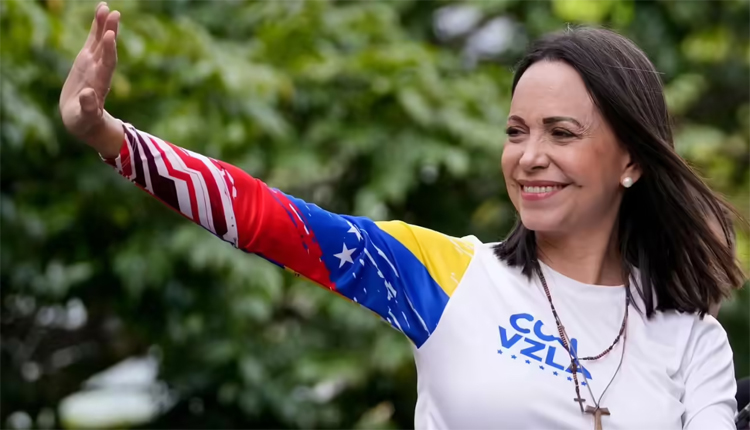Oslo: Venezuelan Opposition firebrand Maria Corina Machado, hailed by the Nobel Committee as a beacon of democratic courage, has become a lightning rod for controversy after clinching the 2025 Peace Prize.
Awarded on Friday for her relentless push for a “just and peaceful transition from dictatorship to democracy”, the honour celebrates her role in uniting a fractured Opposition against President Nicolás Maduro’s iron grip. Yet, as Machado dedicates the award to US President Donald Trump – calling him an inspiration for American-style democracy – critics worldwide decry it as a politicised snub to true pacifism.
Machado, 58, the “Iron Lady” of Venezuelan politics and founder of Vente Venezuela, has long symbolised resistance. She was elected to parliament in 2010, and she backed candidate Edmundo González in last year’s disputed polls, mobilising volunteers to document alleged fraud.
Barred from running herself, she’s now in hiding, evading Maduro’s threats. The Committee praised her as a “civilian courage” exemplar in Latin America, embodying Alfred Nobel’s vision of fraternity through democratic tools.
But the backlash is swift and sharp. Detractors slam her pro-US tilt, noting her post-Trump re-election gush: “We always trust you.” Detractors brand her Netanyahu support and unproven claims of Maduro-linked gangs plotting US attacks as inflammatory, fuelling calls for foreign intervention – hardly a blueprint for peace. “Awarding a leader who boycotts elections and courts military meddling undermines the prize’s sanctity,” one analyst fumed, echoing fears it endorses right-wing resource grabs by global firms.
Such criticism isn’t unprecedented; past laureates like Henry Kissinger (1973), accused of war crimes, and Menachem Begin (1978), with a militant past, drew ire too. Supporters argue the Nobel spotlights future hope over flawless histories. Machado’s win, her nation’s first, intensifies the debate: Is she a peace warrior or a volatile individual?



Comments are closed.